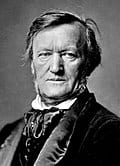 I have long found delight in the word “peripatetic”. It is true that I have for most of my life ben attracted to “five-dollar” words, a sure sign of my egregious pedantry (see?). But this word that has adorned my masthead for this blog for some time now has a rich and elastic meaning and well captures what I think I am doing when I sit down to compose my latest thinking about one thing or another. To be peripatetic in its strictest sense is to be a follower of Aristotle and his philosophical school. I readily admit that I do not consider myself a particular follower of the old Greek, though I spent a good bit of time with the old boy in my college philosophy days, still his wide-ranging reflections on all manner of important subjects echoes some of my own wide interests, albeit his mind is, of course, far keener than mine. In that sense, being peripatetic is to be intellectually restless, inveterately curious, never quite satisfied with the obvious or easy. I hope I have put my energies in those directions throughout my life.
I have long found delight in the word “peripatetic”. It is true that I have for most of my life ben attracted to “five-dollar” words, a sure sign of my egregious pedantry (see?). But this word that has adorned my masthead for this blog for some time now has a rich and elastic meaning and well captures what I think I am doing when I sit down to compose my latest thinking about one thing or another. To be peripatetic in its strictest sense is to be a follower of Aristotle and his philosophical school. I readily admit that I do not consider myself a particular follower of the old Greek, though I spent a good bit of time with the old boy in my college philosophy days, still his wide-ranging reflections on all manner of important subjects echoes some of my own wide interests, albeit his mind is, of course, far keener than mine. In that sense, being peripatetic is to be intellectually restless, inveterately curious, never quite satisfied with the obvious or easy. I hope I have put my energies in those directions throughout my life.
Still, various synonyms of the word raise serious warnings. To be peripatetic can also be “errant” or dangerously “nomadic,” ever keen to wander off the beaten paths of intellectual rigor. I hear that call to be careful when wandering away from accepted reflection, but I have not been willing to allow that call to deflect me from a subject or two that might be seen as controversial or perilous. I judge a peripatetic mind to be a curious one, eager for the next challenge, anxious to see where events and people may lead.
Of course, I chose this word for my blog title primarily because it allowed me to report on my travels to various places close to home and far away. I have been blessed to go to many places in my ministry of preaching and speaking, and nearly every one of these trips has increased my stock of ideas that range from the mundane to the almost profound. Peripatetic meant to me one who moves about, who tries to see in other places and climes new ways of thinking and being. Still, over the years of my writing, I have expanded the word to include interior roaming as much or perhaps more than physical travel hither and yon.
I offer you these preliminary thoughts by way of introduction to my most recent peripatetic movements. As I announced in earlier posts, my wife, Diana, and I have now been married for 50 years, and by way of celebration we took two extended trips. The first was to Alaska, part of which involved an inland-passage cruise. I have spoken briefly of that event already, although there may be more to say about it in future essays. The second of those trips was to Europe, specifically Switzerland (very briefly), then Bavaria, Austria and southern Germany. It was a truly beautiful journey, filled with wild barren mountain peaks, vast green valleys, dotted with small villages, very old cities with cobblestone streets, ancient churches, and long colorful histories. And there was much music involved, too, two marvelous concerts in Salzburg and Leipzig, along with the truly fabulous Bach museum in that latter city, one of the great experiences of my musical life.
 Today, however, I wish to speak about the astonishing and eminently sad life of one of the last kings of an independent Bavaria—before it was swallowed up into Bismarck’s greater Germany—Ludwig II. It is a tale of lavish wealth, grand beauty, and overwhelming obsession. He is perhaps best known for his fairy-tale castle Neuschwanstein, perched high in the mountains on the border of contemporary Austria and Germany. We had visited this fabulous place, famously the inspiration for the iconic Disney castle found in the middle of each of his world-wide theme parks, on an earlier trip so did not feel the need to go again. We did, however, visit the Linderhof, a far smaller property, but one he actually lived in for a time. He had other fantastic homes, notably the huge house Herrenchiemsee on a lovely lake in southeastern Germany, one we did not visit, I am sorry to say. It remained unfinished at his very early death. Each of these homes is lavish beyond all telling with astonishing rooms, filled with gold and silver, Meissen glass, intricate carvings in every place the eye can see. One could not replicate such ostentation today for many billions of dollars, even if one could uncover the requisite craftspeople to do the work.
Today, however, I wish to speak about the astonishing and eminently sad life of one of the last kings of an independent Bavaria—before it was swallowed up into Bismarck’s greater Germany—Ludwig II. It is a tale of lavish wealth, grand beauty, and overwhelming obsession. He is perhaps best known for his fairy-tale castle Neuschwanstein, perched high in the mountains on the border of contemporary Austria and Germany. We had visited this fabulous place, famously the inspiration for the iconic Disney castle found in the middle of each of his world-wide theme parks, on an earlier trip so did not feel the need to go again. We did, however, visit the Linderhof, a far smaller property, but one he actually lived in for a time. He had other fantastic homes, notably the huge house Herrenchiemsee on a lovely lake in southeastern Germany, one we did not visit, I am sorry to say. It remained unfinished at his very early death. Each of these homes is lavish beyond all telling with astonishing rooms, filled with gold and silver, Meissen glass, intricate carvings in every place the eye can see. One could not replicate such ostentation today for many billions of dollars, even if one could uncover the requisite craftspeople to do the work.
But what led Ludwig, a tall and quite handsome prince and king, to create these absurdly lavish places that still cause gasps of delight at the overwhelming beauty and sighs of astonishment at the incalculable cost of such palaces? The answer is obsession. The young prince was from a very early age completely enamored with the romantic antiquity of the Germanic past, especially as those were expressed in the grand operas of Richard Wagner. Ludwig was a dreamy boy and man, an esthete, who loved fine clothes, fine wine, and exquisite rooms and buildings. His royal family did all they could to find him a suitable marriage partner, but though he was engaged for a time to an intelligent and lively princess, he ended the relationship and never married. In effect, we was “married” to Wagner, subsumed under the spell of a narcissistic genius who found in Ludwig his meal ticket to greatness and vast operatic success. Without King Ludwig II, Richard Wagner may have sunk out of sight among the other little-known composers of the mid-nineteenth century. Ludwig quite literally made Wagner and allowed him to affect profoundly the course of musical history.
It was Ludwig who gave Wagner vast sums of money to mount his titanic stage works and to enable Wagner to create his own concert hall at Bayreuth, specifically designed to Wagner’s specifications to present his works in the unique ways he envisioned. In addition, it was Ludwig who financed Wagner’s house in Bayreuth, Wahnfried, where he and his growing family could live in lavish comfort. The fact that Wagner had married Cosima von Bulow, daughter of the great composer and pianist Franz Lizst, wife of a celebrated conductor of the time, after he had stolen her from her husband during a torrid and quite public affair, affected Ludwig’s support of the rake not in the least. For Ludwig, Wagner and his art were all, and the king risked bankruptcy to keep his friend in great ease.
When Wagner died in Venice, Ludwig was distraught, and himself died soon after in mysterious circumstances. He had been deposed as king by the courtier Luitpold, who announced that the king was in fact insane, having been judged so by four eminent psychiatrists of the time, none of whom had actually examined the king personally. One of these four accompanied Ludwig on his last day on a brief walk, after which both of their bodies were found submerged in a lake, dead. The stuff of opera indeed! Ludwig was 40.
I find this sad tale absorbing for many reasons. I enjoy Wagner’s music, though I cannot say I love all of it. I do not doubt his genius, nor do I doubt his quite repulsive human behavior, including his production of a revolting pamphlet, “The Jew in Music,” that became part of the monstrous Nazi blueprint for the destruction of European Jewry. Adolph Hitler absolutely adored Wagner’s music, seeing himself in more than a few of the heroes of that music, reason enough to listen to it with care and caution. Wagner inspired Ludwig just as he posthumously inspired Hitler, another terrible example of obsession that should give us pause.
Ludwig’s story of Wagnerian obsession gave the world great beauty along with overwrought buildings and fantastic, eye-popping spectacles. In the process, the king gave his life, quite literally, for his obsession. Hitler’s twentieth century obsession gave the world horrors that it will never fully expunge. Obsession often leads to tragedy. I think of the fictional Javert’s legal obsession with Jean Valjean’s early theft of a generous cleric’s candle sticks, an obsession that led him at the end to take his own life. I think, too, of certain religious persons, whose obsessions with right belief have led them to reject and excoriate those who do not share their particular beliefs, practices that have led to verbal attacks and even physical assaults. I am always reminded of those fateful words from the English puritan, Oliver Cromwell: “ Can you not admit, in the bowels of Christ, that you may be wrong?” Can we not? Any obsession, no matter how trivial it may appear, can quite directly lead to disaster, both personally and in society.
(Images from Wikimedia Commons)











